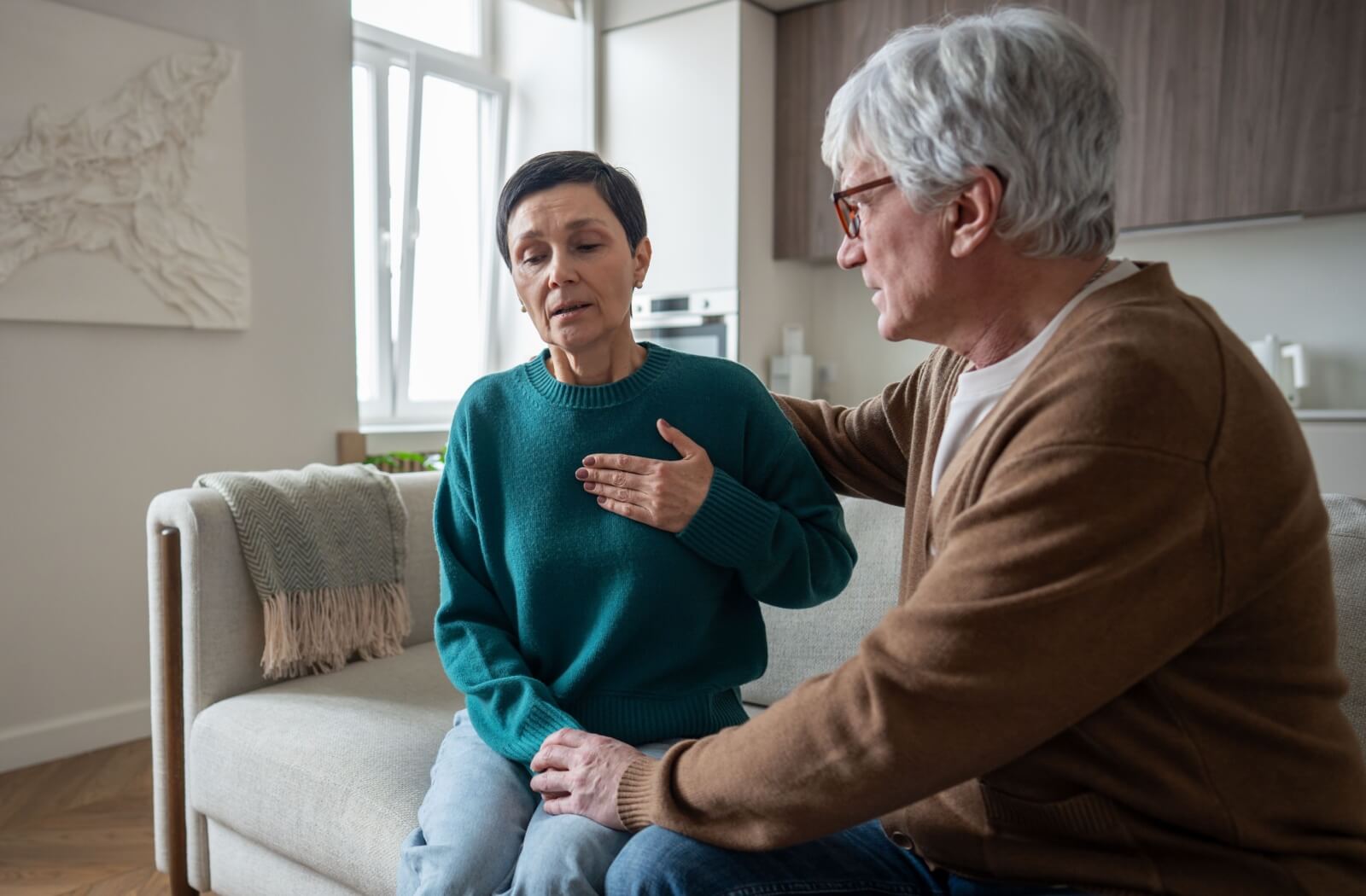As people age, it’s common for anxiety to become more present in their daily lives. With more time spent in stillness—often due to illness, limited mobility, or a change in routine—there’s more room for worry to creep in. Without enough stimulation or social connection, this mental space can quickly fill with anxious thoughts.
Whether it stems from changes in health, memory loss, grief, or transitions like moving into a senior living community, anxiety in older adults deserves attention and a thoughtful approach. Easing this anxiety often comes down to creating a sense of safety, providing structure and routine, offering gentle reassurance, and encouraging calming activities or social interaction.
Recognizing the signs and understanding how to soothe anxiety can help your loved one feel safe, supported, and understood.
Why Do Seniors Experience Anxiety?
Anxiety doesn’t only affect younger people—it often emerges or worsens with age. Many seniors face unique stressors, including:
- Health issues or chronic pain
- Cognitive changes, such as dementia
- Medication side effects
- Loss of independence
- Social isolation or loneliness
- Grief after losing a partner or friend
- Fear of falling, getting lost, or becoming a burden
These concerns can weigh heavily on a person’s mental well-being, especially when there’s limited access to emotional support or coping tools.
Signs of Anxiety in Older Adults
It’s not always easy to identify anxiety in seniors. Some may not openly express their worries, and others may not recognize the symptoms themselves. Look out for:
- Restlessness or irritability
- Difficulty sleeping or eating
- Muscle tension or trembling
- Repeatedly asking the same questions
- Avoiding certain places or activities
- Excessive worrying, especially about health or safety
- Trouble concentrating or making decisions
If you notice these behaviors regularly, your loved one may be dealing with anxiety.
Strategies to Calm an Elderly Person with Anxiety
Understanding how to respond in the moment and build long-term coping strategies can ease both daily stress and larger life transitions. Here are practical ways to help an elderly person calm down when they’re feeling anxious.
Stay Calm Yourself
Your presence and energy have a powerful impact. If you appear nervous or rushed, it may heighten their anxiety. Instead:
- Speak in a slow, gentle tone
- Maintain relaxed body language
- Offer steady eye contact and reassurance
Simply being calm and consistent can be grounding for someone who feels overwhelmed.
Use Reassuring Touch & Simple Language
Physical touch—like holding a hand or patting a shoulder—can be deeply comforting if your loved one welcomes it. At the same time, avoid long or complicated explanations. Use clear, reassuring phrases like:
- “You’re safe right now.”
- “I’m here with you.”
- “Let’s take a few deep breaths together.”
Familiar and affirming words can ease confusion and fear.
Encourage Deep Breathing or Grounding Techniques
Simple breathing exercises are one of the quickest ways to reduce physical symptoms of anxiety. Try guiding your loved one to:
- Breathe in slowly for 4 counts
- Hold for 2 counts
- Exhale gently for 6 counts
Or use grounding techniques such as naming:
- 5 things they see
- 4 things they can touch
- 3 things they hear
- 2 things they smell
- 1 thing they taste
These exercises help redirect attention away from anxious thoughts and back to the present moment.
Limit Stimuli in the Environment
Noisy or chaotic surroundings can increase agitation. Help reduce anxiety by:
- Turning off the TV or lowering music volume
- Closing curtains if there’s too much light or activity outside
- Offering a quiet, cozy space to sit
The goal is to create a calm, predictable environment where they feel safe.

Provide Routine & Structure
Many seniors find comfort in routine. Knowing what to expect each day can reduce uncertainty and help prevent anxiety from building. Support them by:
- Keeping regular wake-up, meal, and bedtime routines
- Offering gentle reminders of upcoming activities
- Using a simple calendar or visual schedule, if helpful
Even small rituals, like having tea at the same time each day, can bring comfort and stability.
Validate Their Feelings Without Arguing
It can be tempting to “correct” a loved one who’s expressing anxious thoughts, especially if they seem irrational. But arguments usually backfire. Instead:
- Acknowledge their feelings: “I can see this is upsetting you.”
- Avoid saying, “You don’t need to worry.” Instead, say, “I understand why that would feel stressful.”
- Gently redirect their focus to a soothing topic or activity
Validation helps them feel heard, which is often the first step toward calming down.
Offer Distraction & Comfort Activities
Sometimes, shifting attention to a different activity can reduce anxiety. Consider:
- Going for a short walk
- Listening to music they enjoy
- Looking through photo albums
- Doing a simple craft or puzzle
- Enjoying a favorite snack or drink
Choose activities that are familiar and pleasurable rather than overly stimulating or demanding.
Monitor Medications & Physical Health
Anxiety can sometimes be caused or worsened by physical issues. Make sure their healthcare provider is aware of:
- Any new or worsening symptoms
- Medication side effects
- Sleep disturbances or pain levels
- Nutritional changes
In some cases, addressing a medical cause can dramatically reduce anxiety symptoms.
Encourage Connection & Social Support
Loneliness is a powerful contributor to anxiety in older adults. Help your loved one stay connected by:
- Arranging regular visits or phone calls with family and friends
- Encouraging participation in group activities or events
- Introducing them to staff or other residents in a senior living community
A sense of belonging can ease fear and remind them they’re not alone.
Seek Professional Help When Needed
If anxiety is interfering with daily life or worsening over time, it may be time to involve a professional. Many seniors benefit from:
- Speaking with a therapist who specializes in aging or anxiety
- Exploring medication options with a physician
- Participating in group therapy or support groups
Anxiety is manageable, and no one should have to suffer in silence.
A Safe & Supportive Environment Makes All the Difference
When it comes to calming an anxious elderly person, consistency, empathy, and patience go a long way. The environment they live in plays a key role, too.
At All American Assisted Living at Wareham, we offer personalized care and a supportive community designed to help residents feel secure and engaged. From compassionate team members to daily routines, our approach prioritizes emotional well-being and peace of mind. Whether your loved one is dealing with mild anxiety or navigating a more complex emotional journey, we’re here to support them—and you—every step of the way.
Looking for a community that understands your loved one’s emotional and physical needs? Schedule a tour today to learn how our team can help.





